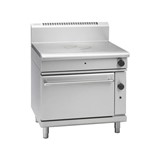The details of the scheme were announced by the Hon George Souris MP, Minister for Tourism, Major Events, Hospitality and Racing.
What the scheme means for the industry
Under the scheme, the licensee of each licensed premises in NSW will be required to pay an annual fee to the government.
A full understanding of the scheme may allow licensees to minimise the fee they will need to pay.
The fees
- The level of the fees payable by each venue will be calculated using a risk-based model comprising:
- A base fee, plus
- Risk-based loadings that reflect the level of risk posed by a venue and its operation
- I encourage you to visit www.olgr.nsw.gov.au for full information about the scheme. A fee calculator is also available on this website.
- You can also use the links in the Related Files and Related links boxes to the right to access the fact sheet and calculator directly.
- Timeline for the scheme
- The scheme commences in July 2014, for the 2014/15 financial year. The assessment date for fees is 15 March each year, with the first assessment date as 15 March 2015
This gives licensees an extended period in which to review existing business models and practices, and to make adjustments prior to the initial assessment date.
Payments for the 2014/15 financial year will be due by 29 May 2015.
Initially, each licence will pay the base fee, and each licence that is authorised to trade after midnight will also pay a risk-based loading.
In the 2015/16 financial year, and following years, each licence will be assessed for the full range of risk-based loadings - but these only apply if a venue has an adverse compliance history.
If an adverse compliance history exists during the calendar year prior to the 2016 and later assessments, then a compliance history risk loading and a patron capacity risk loading will apply, and a location risk loading may apply depending on the licence.
This staged approach ensures licensees are aware of the consequences of non-compliance under the scheme. Also, it provides sufficient time for licensees to review the adequacy of existing practices and procedures and to minimise the risk of paying additional risk-based loadings.
A fair and flexible scheme
The scheme is fair and flexible. Licensees can lower the amount they pay by maintaining safe, low-risk operations and strong responsible service practices. While this is an important change for the industry, the base fee is modest. Over 75 per cent of the 18,400 licensed venue operators across NSW will pay a base fee equal to or less than $500 each year.
The Office of Liquor, Gaming & Racing (OLGR) will work with licensees and industry associations to provide guidance on good practice and to assist licensees to reduce their risk profile and potentially reduce fees – to make sure that licensees are not paying more than they need to. OLGR can also help you to relinquish approval to trade after midnight, or make other adjustments to licensing arrangements, which may attract lower risk-based fees.
OLGR is committed to working with industry to implement these changes, and will continue to actively engage with the industry peak bodies.
Why has the scheme been introduced?
The scheme introduces contemporary best practice in liquor regulation into NSW and aligns with existing practices in Victoria, Queensland and the Australian Capital Territory.
Risk-based licensing models are consistent with community expectation and it is in the public interest for businesses that benefit from the licensing regime to directly contribute to the cost of industry supervision and managing alcohol-related risk and regulation.
The scheme will provide licensees with incentives to improve compliance with the liquor laws and adopt lower-risk business models. Revenue raised from the scheme will fund the cost of regulation and support improved service provision and robust risk-based industry practice.
As a result, the community and industry will benefit from enhanced industry supervision, enforcement activities that target high-risk venues and precincts, and improved client service for licensees.
Increasing the accountability of venues will help reduce alcohol-related violence, anti-social behaviour and neighbourhood disturbance. Improved regulation and compliance will also help reduce demands on police, ambulance and hospital services.
Summary
- The scheme starts on 1 July 2014 (the start of the 2014/15 financial year)
- The assessment date is 15 March each year, starting 15 March 2015 and applying to the 2014/15 financial year
- Payment of licence fees will be due by 29 May each year
- The scheme has a staged introduction over two years
- Licensees can lower the amount they pay by maintaining safe, low risk operations and strong responsible service practices
- Licensees will have until the first assessment date (15 March 2015) to review business models in order to minimise the level of the fee for the first year
- About the staged introduction
- Starting in the 2014/15 financial year:
- Every licensee will need to pay a base fee. For more than 75 per cent of NSW licences, this will be $500 a year or less
- Every licensee authorised to trade after midnight will pay an additional trading hours risk loading
- From the 2015/16 financial year:
- Every licensee will need to pay a base fee
- Every licensee authorised to trade after midnight will pay an additional trading hours risk loading.
- If an adverse compliance history exists in the calendar year prior to assessment date, the licensee will pay a compliance history risk loading
- If a compliance history risk loading applies, the licensee will also pay a patron capacity risk loading
- If a compliance history risk loading applies, and the licensed venue is located in a defined risk are, the licensee will also pay a location risk loading




-160x160-state_article-rel-cat.png)



